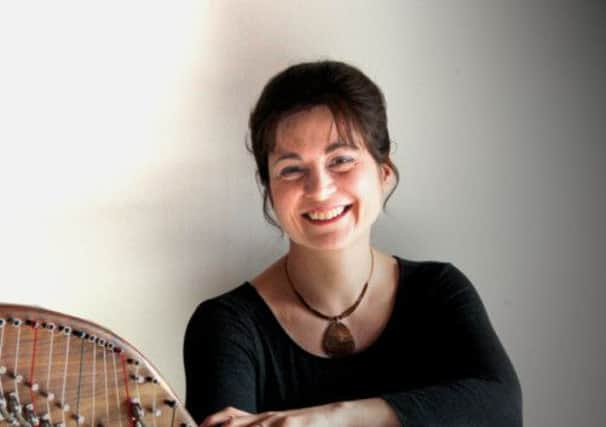Bringing Commonwealth Gaelic diaspora home for 2014


The Gaelic herdsmen who once conducted their stirks hundreds of miles through the hills and lowlands eventually found themselves displaced, to herd in North America or the Antipodes; the ferries that ply our sounds and sea lochs have their counterparts in the Gaelic diaspora of Nova Scotia. Both are celebrated in new pieces of music among 20 commissions for the first New Music Biennial, set to be performed across the UK next year, culminating in performances in Glasgow in association with the Commonwealth Games.
Cross-genre collaboration is a notable feature of the 20 commissions announced by the PRS for Music Foundation last month as a flagship element of the cultural celebrations associated with the games, and reflecting the diversity of musical activity throughout the UK. Examples include jazz and classical pianist Gwilym Symcock playing in a new work for clarinet, jazz trio and strings and Scotland’s Mr McFall’s Chamber teaming up with Bermuda-born composer Gabriel Jackson to arrange poems of island life, both Scottish and Caribbean.
Advertisement
Hide AdFolk music is well represented, with Northumbrian concertina virtuoso Alistair Anderson playing with West Indian steel pan players, while the formidable Scottish trio Lau, no strangers to extracurricular collaboration (working with jazz-rock bassist Jack Bruce, for instance) have been commissioned by Celtic Connections to create a piece with the respected Elysian String Quartet.
Meanwhile Matheu Watson and Luke Daniels are creating New World Drover Tracks, inspired by Scotland’s emigrant drovers. Edinburgh-based multi-instrumentalist Watson has established his reputation with a couple of impressive albums and featured in the soundtrack of the film Brave. Daniels, who grew up in Oxfordshire, developed a very Irish button accordion style which gained him a BBC Young Tradition Award when he was just 17. He now lives in Hamilton and is also a talent in demand, contributing to the score of The Hobbit and collaborating with such disparate elements as English National Opera and the London Philharmonic Orchestra.
Daniels and Watson’s 15-minute commission leads on from a piece developed with Welsh musicians, celebrating the drove roads of Wales.
“I have an interest in the droving traditions,” Daniels, now 39, says, “The Scottish project deals with the way in which the Highland drovers … took their droving skills to the New World, essentially becoming cowboys.” Daniels on accordion and Watson on electric guitar will be joined for the piece by musicians from the Commonwealth countries of Australia and Canada.
Meanwhile Highland harpist and broadcaster Mary Ann Kennedy teams up with Canadian composer Scott Macmillan, as well as Gaelic poet Aonghas MacNeacail and Kennedy’s husband, sound engineer Nick Turner, to create Aiseag – “The Ferryboat”, inspired by the many ferries that ply the sea routes of the Highlands and islands, as well as similar crossings on Cape Breton Island, Nova Scotia, which has its own Gaelic traditions.
Not least among these hardworking vessels is the Corran Ferry, the short sailing across Loch Linnhe which musicians take on their way to Kennedy and Turner’s Watercolour Studios at Ardgour.
Advertisement
Hide Ad“I’ve always had this thing about ferries. It’s a bit anoraky,” laughs Kennedy. “But if you come over to work with us in Ardgour, there’s something about that Corran ferry that gives you permission to leave everything else behind and just concentrate on what’s in front of you.”
The piece is likely to involve Scots and Cape Breton musicians, the Glasgow Festival Strings and Inverness Gaelic Choir, as well as recorded material from the ferries themselves. Kennedy’s working relationship with the poet “Aonghas Dubh” goes back a long way – as far back, in fact, as 1986, when he signed one of his books and presented it to her – on board the Mull ferry.
• For details of the New Music Biennial, see www.prsformusicfoundation.com